After a long year filled with political and social action, the Mail & Guardian mirrors the most trending topics on social media in the year 2014. These are topics that made headlines nonstop and kept everyone talking, tweeting, and interacting on Facebook.
Here are the M&G’s seven most trending topics in 2014:
1. Christmas behind bars. Oh no! No firecrackers for Oscar Pistorius
As the year began, South Africans – and the world – waited in anticipation to find out what would be Judge Thokozile Masipa’s final verdict in the Oscar Pistorius murder trial.
Legal eagle Barry Roux, defending Pistorius, and state Prosecutor Gerrie Nel went head-to-head in a heated case.
After a long pre-sentencing hearing, on October 21, Masipa sentenced Pistorius to five years in jail for culpable homicide. He stood trial for killing his girlfriend, Reeva Steenkamp, on February 14 2013. Pistorius was sent to Pretoria’s Kgosi Mampuru II prison to serve his sentence.
Earlier this month, Masipa granted the state’s application to appeal the paralympian athlete’s conviction. However, she dismissed the state’s application to appeal his sentence.
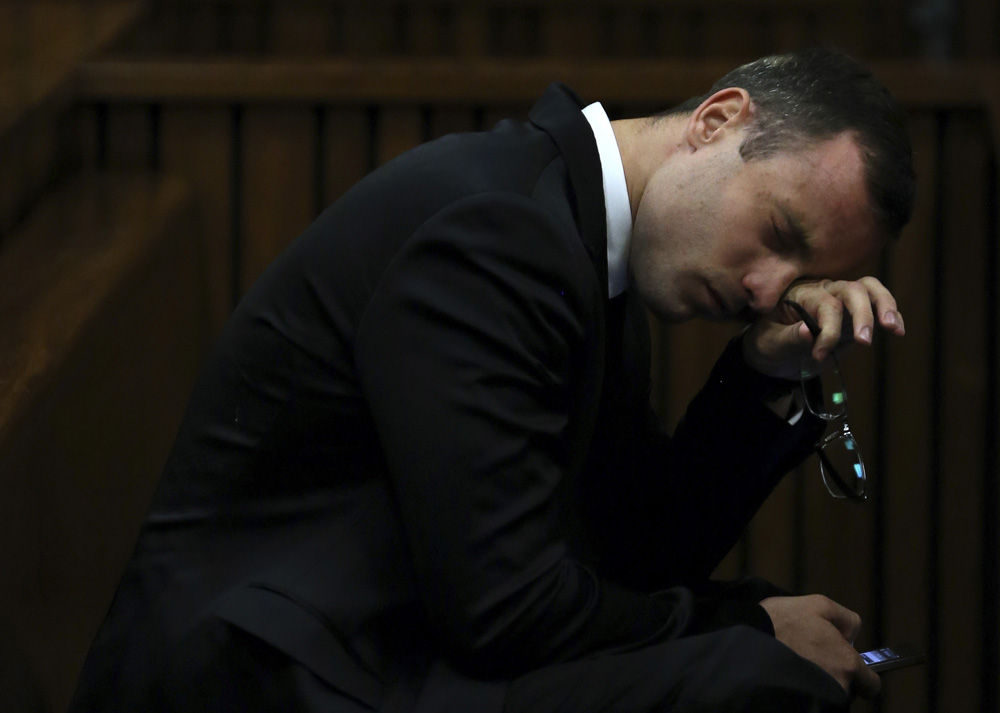
Oscar Pistorius cries in court. (Photo by: Reuters)
Well, Oscar you will be spending your first Christmas behind bars. No discharging a firearm at Tasha’s restaurant in Sandton or drinking expensive wines and whiskies for now. That’s what you get when you shoot Reeva Steenkamp like that watermelon you fired at during the shooting session you had with friends. Have you forgotten? Don’t worry I will remind you, “It’s a lot softer than brain, but **** it’s like a zombie stopper”.
2. #Elections2014: More promises and free T-shirts. No service delivery! Typical politicians
This year was election year, and a lot of promises were made by politicians ahead of the May 7 elections. Some of these ranged from expropriating land without compensation and better service delivery to job creation. Social media users also participated during the election period to express their views about the changes they would have liked to see.
New players
When Dr Mamphela Ramphele launched AgangSA in June 2013, the Democratic Alliance (DA) welcomed its addition to the political landscape, calling it a step towards a united opposition. Less than a year later, the two parties tried and failed to team up ahead of the election. Even the famous kiss between Ramphele and DA leader Helen Zille could not seal the deal.
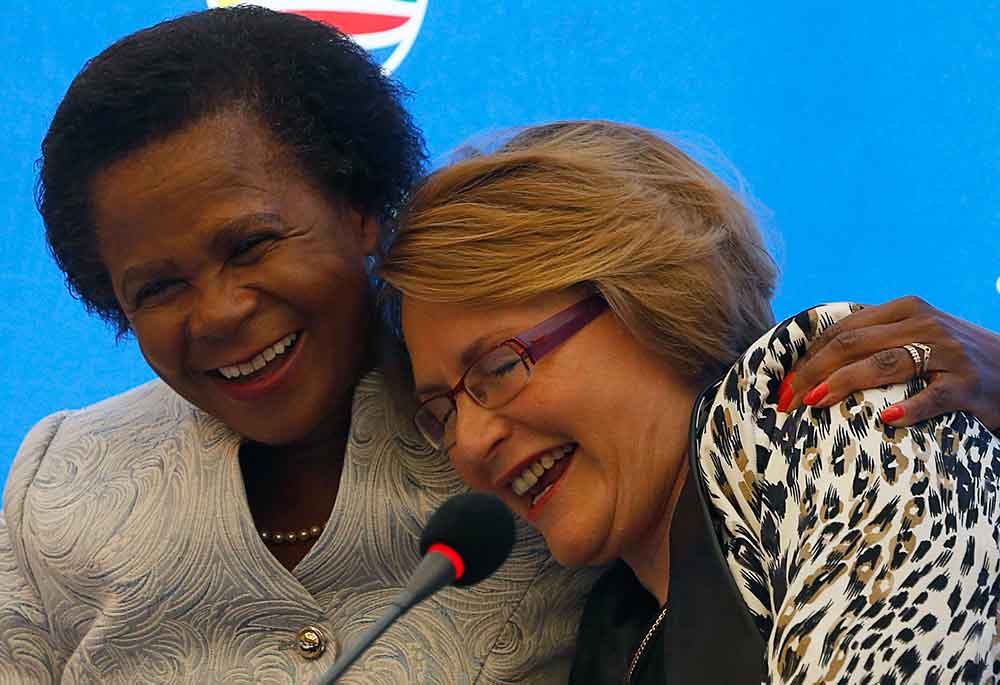
AgangSA leader Mamphela Ramphele and DA leader Helen Zille hug it out. (Photo by Mike Hutchings, Reuters)
Nevertheless, AgangSA’s manifesto remained similar in tone to previous DA election campaigns.
Julius Malema launched the Economic Freedom Fighters (EFF) in October 2013 at Marikana, promising “radical” economic policies such as land reform and the nationalisation of land and banks. At its manifesto launch, the party promised higher wages for workers from various industries, including mineworkers and domestic workers.
One cannot forget the ANC’s “good stories to tell” that saw its party president Jacob Zuma being delighted and “humbled” that the majority of South African voters had returned the party to power.
Speaking after the Independent Electoral Commission announced official final results for the elections, Zuma called the ANC victory a “reaffirmation that South Africa indeed has a good story to tell”. The ANC won 62.15% (11 436 921 votes) of the 18-million votes cast.
Though the party remained the majority in the National Assembly and eight provinces, it lost 15 seats in Parliament, reducing it to 249 seats.
Since elections are over, I hope all of you politicians will keep your promises and give voters what they voted for. And, please, no more free T-shirts. Your people have a lot of those; some even use them as pajamas. Maybe food parcels will do this time since its Christmas time. JZ, go rest man, Nkandla is waiting for you. Enjoy the fire pool.
3. Parliament at a standstill – thanks to EFF, Nkandla and Baleka Mbete
After the formation of the EFF, which received 25 seats – the third highest in Parliament – it was clear that the National Assembly would never be the same again. Prior to the elections, Malema made it clear that when they go to Parliament, they are going to bring it to a standstill until Zuma accounts for Nkandla. Without a shadow of a doubt, the EFF managed to do just that.
‘Pay back the money’
It started with a warm smile but ended with an absence. On August 21 2014, Zuma took his place behind the podium at the focus of the big chamber of Parliament, apparently unworried, despite knowing he was due to face tough questions about his Nkandla homestead – again.
And, for the first 23 minutes of answering questions, the atmosphere was light, with jokes punctuating Zuma’s usual hesitant reading of answers to old issues.
Then the chanting started.
Within an hour, the official video feed from Parliament had been cut amid attempts to remove journalists from the gallery – and security officials were getting physical with the EFF, who were still occasionally bursting into the chant they had finally settled on: “Pay back the money! Pay back the money!”
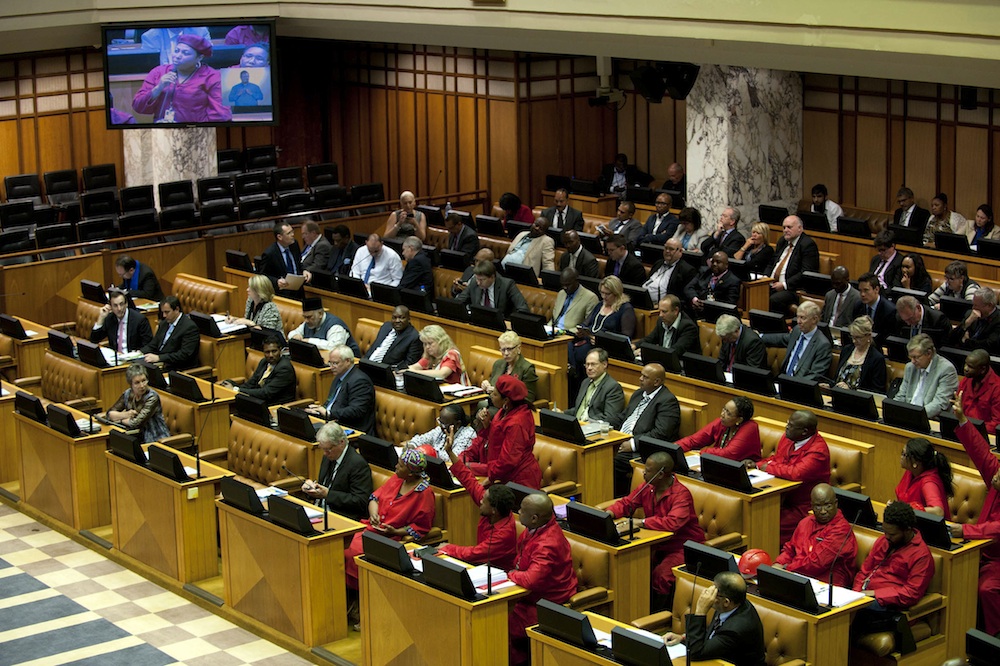
EFF disrupted Parliament during President Jacob Zuma’s response to the Nkandla saga. (David Harrison, M&G)
Zuma was long gone by then, having vacated the chamber even before other MPs filed out. His final smile was decidedly forced.
As promised, the EFF disrupted Parliament during Zuma’s response to the Nkandla saga. The president was giving MPs feedback in Parliament on the Nkandla upgrades when EFF MPs started chanting: “Pay back the money.” The EFF demanded that the president give the date as to when he would repay the money spent at his KwaZulu-Natal private home.
The EFF undoubtedly made this year’s Parliament more interesting as millions of South Africans tuned into their television sets, YouTube, radios and social media to watch parly drama as it unfolded.
Baleka Mbete
The National Assembly speaker Baleka Mbete faced a most difficult year as the DA, EFF, United Democratic Movement, Congress of the People, Freedom Front Plus and the African Christian Democratic Party all wanted Mbete to be removed as speaker.
The opposition parties come together to submit a motion of no confidence in Mbete.They stated that “Mbete has become an obstacle to constructive debate and executive oversight in Parliament”. They criticised the fact that Mbete held the office of ANC chairperson and speaker.
Dear Baleka, you deserve to rest. The EFF and some of the opposition parties gave you a tough time and taught you a lesson that when the opposition is united, a lot can be achieved. You and I know that in the next year of Parliament, you will learn to recognise MPs from the opposition and stop being biased. No more “I am not recognising you”.
4. The untimely passing of Senzo Meyiwa. The Kelly Khumalo ‘bad’ luck.
On October 26 2014, the country heard the sad news that South African football captain and goalkeeper Senzo Meyiwa had been shot dead by intruders in what was being reported as a botched robbery.
The Bafana Bafana and Orlando Pirates captain Meyiwa was shot dead by intruders near Johannesburg in a case that was again focusing the world’s media on the country’s crime problem. He was shot after two men entered a house in Vosloorus where Meyiwa was visiting, at about 8pm, police said in a statement.
It was reported that Meyiwa was at the house of singer and actor Kelly Khumalo during the shooting.
The police offered a reward of R250 000 for information, which would lead to the arrest of the perpetrators. On October 28, police released the identikits of two suspects allegedly linked to the Meyiwa shooting.
The identikits showed two men, one with dreadlocks and another one with a hoodie. The identikits were captioned facial compositions of two suspects.
After a long hunt for Meyiwa’s killers, police finally arrested 25-year-old Zanokuhle Mbatha, but Magistrate Daniel Thulare ruled in favour of the state prosecutor who argued that charges against Mbatha be dropped.
The magistrate said: “As of now there is no evidential material to put Mr Mbatha to trial.”
Kelly Khumalo controversy
Kelly Khumalo has a child with Meyiwa, and she also shares a child with hip-hop singer Molemo “Jub Jub” Maarohanye.
In a separate case, Maarohanye was found guilty of murder for killing four schoolboys while drag racing down a Soweto street while under the influence of drugs. This was later converted to culpable homicide and his sentence reduced to 10 years imprisonment, two of which were suspended.
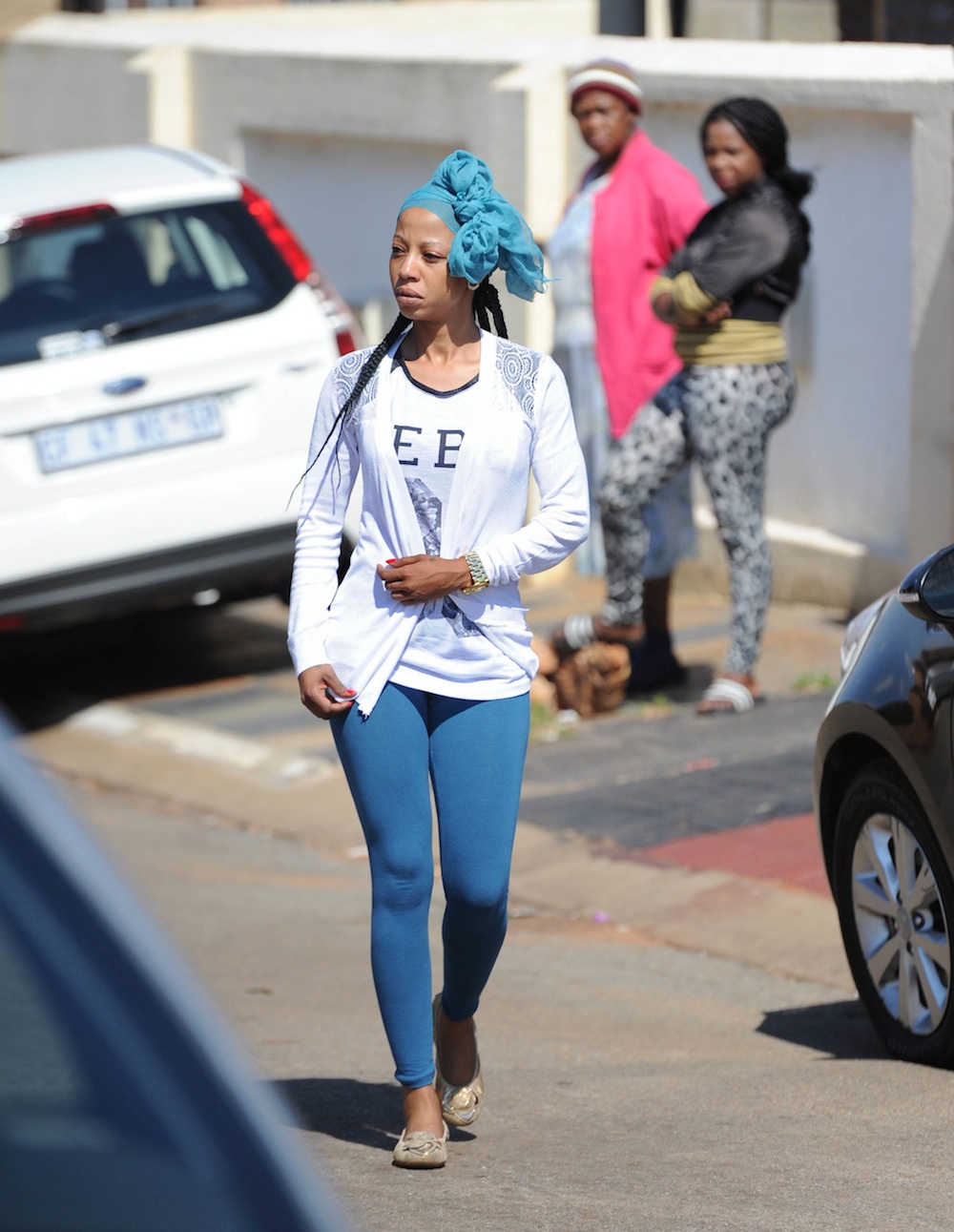
Kelly Khumalo grieving. (Gallo)
Khumalo is no stranger to controversy. A confrontation between Meyiwa’s wife Mandisa Mkhize and Khumalo, reportedly ended with the singer’s arrest last year after she allegedly assaulted Mkhize near the Empire Road off-ramp in Johannesburg.
Meyiwa reportedly told police his wife had provoked Khumalo. “Kelly had no idea that I was in a relationship, I didn’t reveal it to her. I should have known and done better, I have apologised to both Mandisa and Kelly for this,” Meyiwa said at the time. Khumalo posted a picture of herself and Meyiwa to Instagram several hours before the shooting.
While the country was mourning the passing of Meyiwa, South Africans took to a Twitter war over their support for Khumalo and others for Mkhize, both close to Meyiwa.
Meyiwa received a provincial funeral, of which the keynote proceedings were held at Moses Mabhida Stadium in Durban. Prior to that, Meyiwa’s body received a guard of honour in the streets as it was driven from his home in Umlazi to the stadium, he was buried at the Heroes Acre in Chesterville.
Senzo Meyiwa, you might have gone, but you are not forgotten. You will always be missed by all of us despite the drama that followed after your death. Kelly Khumalo, feel free to hala when you finally decide to tell your side of the story about what really happened on that fateful night when our captain was shot.
5. Generations – The Legacy. A thumbs-down to new-look Generations
A few familiar faces and new camera angles were not enough to inspire sustained enthusiasm from followers of the long-running soap opera, Generations. The highly anticipated first episode of the rejuvenated SABC 1 soapie – renamed Generations Legacy – didn’t quite live up to the hype. Fans expressed their disappointment on social media.
The soap opera was off air for a month after producers terminated 16 cast members‘ contracts after they went on strike to demand increased wages.
In August, the M&G reported that the actors demanded bigger salaries and extended three-year contracts. They also wanted royalties from episodes that had been re-broadcast, as well as syndication fees resulting from the sale of Generations outside of South Africa.
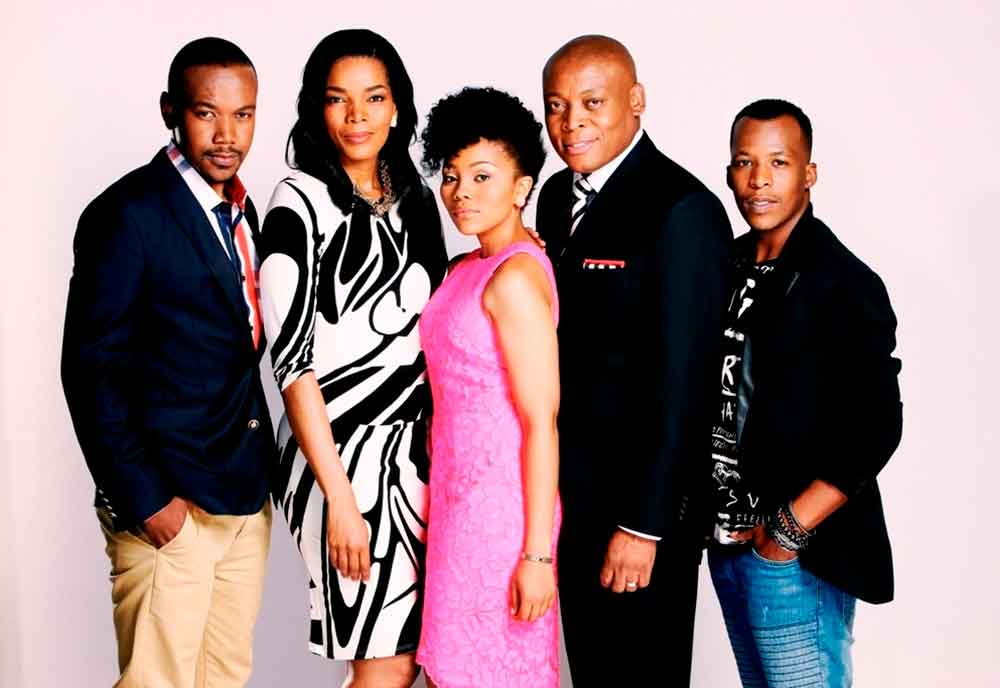
The new cast of ‘Generations’. (Supplied)
Back to original roots
“We are going to our original roots of the series; there will be recognised individuals who were at the beginning of the series, which anchors the new narrative so people will recognise elements of the past and it’s linked with the new direction we are taking,” show creator Mfundi Vundla told Espresso, a morning talk show.
“We hope our stories will be entertaining. We will take a knock as regards to audience – that’s to be expected – but we pledge that for instance the first five episodes of the new Generations, those are going to be stunning episodes and we believe we will claw our way back.”
The regenerated show resumed on December 1 and many people didn’t like the first episode. Some social media users suggested that Mfundi Vundla returns the old cast. The creator of the show didn’t give a sh*t about what people said. It’s clear he doesn’t nurse egos. He means business. At some point we were told that 10-million viewers watched the first episode of the show. Can SABC spokesperson Kaizer Kganyago at least provide us with the latest figures? We want to see whether more people are still watching Generations or whether numbers have declined. Give us the records, spindoctor!
6. SABC board chairperson Ellen Tshabalala has finally resigned. Hala! Merry Christmas to you!
After refusing to resign earlier this month, saying she had done nothing wrong, SABC chairperson Ellen Tshabalala handed in her resignation just under two weeks later. Tshabalala resigned with immediate effect, the presidency said on December 17.
Spokesperson Mac Maharaj said President Jacob Zuma received and accepted her resignation as board member and chairperson. “The president thanks Ms Tshabalala for her contribution to the public broadcaster and wishes her all the best in her future endeavours,” he said in a statement.
Tshabalala had been under fire for not providing proof of her qualifications, as requested by a parliamentary committee. She claimed she had a bachelor of commerce degree from the University of South Africa (Unisa) and a postgraduate degree in labour relations, but Unisa denied Tshabalala was awarded a degree.
Even though Tshabalala had registered for the degree in 1988, and again in 1996, she failed to obtain the qualification. During the academic year, she passed two, failed two, and did not write exams for two of the modules. In January 1996, she was allowed to rewrite the two she could not write the previous year.
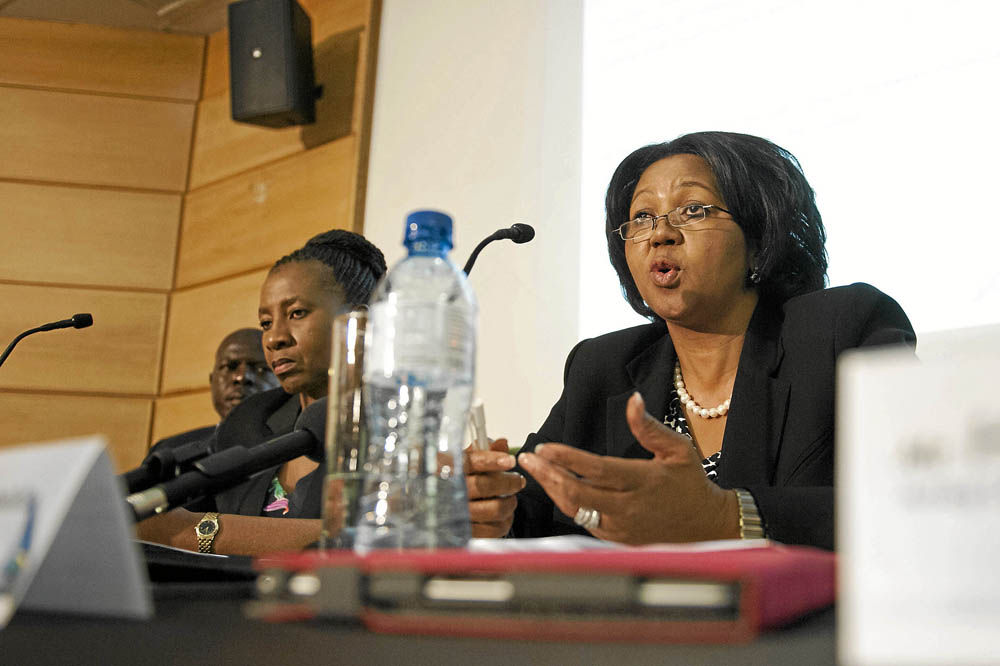
SABC chairperson Ellen Zandile Tshabalala. (Delwyn Verasamy, M&G)
After weeks of refusing to step down, you finally made the right decision. Bravo! I am not sure whether I should thank you or what. Hell no! I won’t thank you. You did an honourable thing even though it was too late. I hope you will now have enough time to go back to school and get that degree. Stop this maga maga business.
7. Blackout. Dark Christmas. Nkandla lights on
President Jacob Zuma recently told delegates at the Young Communist League’s congress in Cape Town that South Africa’s energy problems were a product of apartheid and government was not to blame for the current blackouts. “The problem is the energy was structured racially to serve a particular race, not the majority.”
He further said the ANC had inherited the power utility from the previous regime which had only provided electricity to the white minority. Zuma said government was taking action to address the energy situation. The development of the Medupi and Kusile power stations was being accelerated in order to bring them on to the grid.
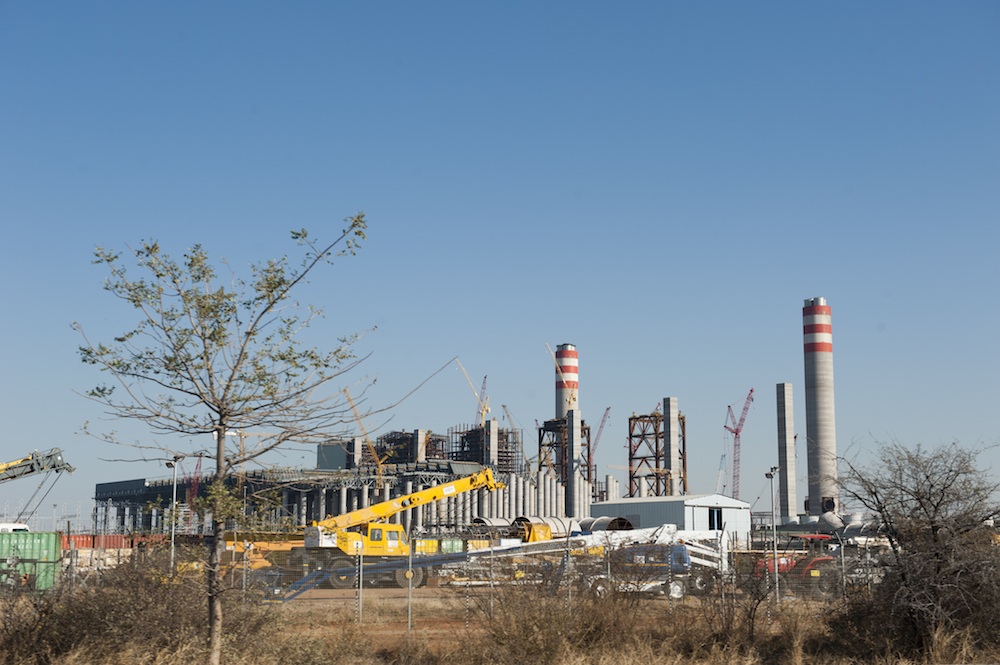
Medupi power station. (Madelene Cronjé)
“Projects in the region with the potential to produce power in the short term are being assessed and we continue to evaluate options with the intention to maximise all sources of energy including coal, gas, nuclear, solar and renewable energy options,” Zuma said.
It’s no secret that many businesses and South Africans are affected by the continuous electricity crisis. I actually agree with Democratic Alliance parliamentary leader Mmusi Maimane when he said Eskom must declare the rolling blackouts a national crisis. Yes, it about time. I am confused when Zuma says “government was taking action to address the energy situation”. For heaven’s sake, can JZ stop lying and admit that his people are failing to meet their deadline to deliver the Medupi and Kusile power stations? You can’t keep claiming that government is taking action. How long should we wait for this energy crisis to be resolved? Do you want us to spend Christmas in the dark, while you enjoy Christmas with electricity in Nkandla. Come on, Mr President!